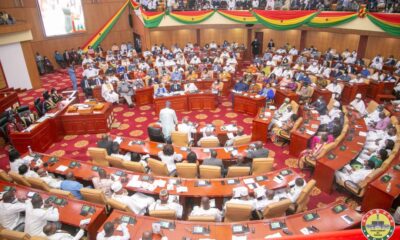According to two individuals quoted by Reuters, Ghana and its official creditors have resolved the main points of a debt restructure and will shortly sign a draft memorandum of agreement, which is a crucial step needed to obtain further financing from the International Monetary Fund (IMF).
The document formalizes a tentative agreement to restructure $5.4 billion in debt that was made in January with government creditors, including China and France. The West African country is attempting to navigate its way out of the worst economic crisis in a generation.
Establishing an MoU will enable the IMF executive board to convene and authorize the $360 million payment under Ghana’s $3 billion rescue plan, which is anticipated to take place later this month.
One person with knowledge of the situation stated that all significant difficulties had been resolved and that the only remaining steps were to finalize some precise wording. The sources stated that the agreement was likely to be signed in a few days. An inquiry for comment was not immediately answered by a representative for Ghana’s Finance Ministry.
Amid skyrocketing servicing expenses, Ghana defaulted on the majority of its foreign debt in December 2022, following Zambia into post-COVID default. Remaining in default makes it more difficult for the government to get outside financing and escape a dire economic situation.
Ghana, like Zambia, agreed to undergo debt treatment under the G20 Common Framework, a procedure meant to speed up debt restructurings and include China, the newest major bilateral lender, in the process. Earlier this week, bondholders in Zambia approved the restructuring after the southern African copper miner missed payments due to the COVID-19 outbreak.
The World Bank and other international organizations, as well as creditors, are keen to hasten Ghana’s debt restructuring and believe that the country’s nearly four-year-long, erratic struggle out of default offers valuable lessons for Ghana.
In addition to restructuring the majority of its domestic debt, Ghana must also come to an understanding with the holders of over $13 billion in foreign bonds.
Ghana’s national debt-to-GDP ratio was expected to decrease by 15% between 2023 and 2028. According to this estimate, the percentage will have decreased annually for six years, reaching 69.96% in 2028.
The majority of the country’s foreign debts were not repaid by December 2022 because the costs had risen too high. However, it now needs to negotiate a settlement with individuals who own foreign bonds worth roughly $13 billion. The majority of its domestic debt has also been modified.


 Sports2 days ago
Sports2 days ago
 Metro2 days ago
Metro2 days ago
 Metro1 day ago
Metro1 day ago
 Culture2 days ago
Culture2 days ago































